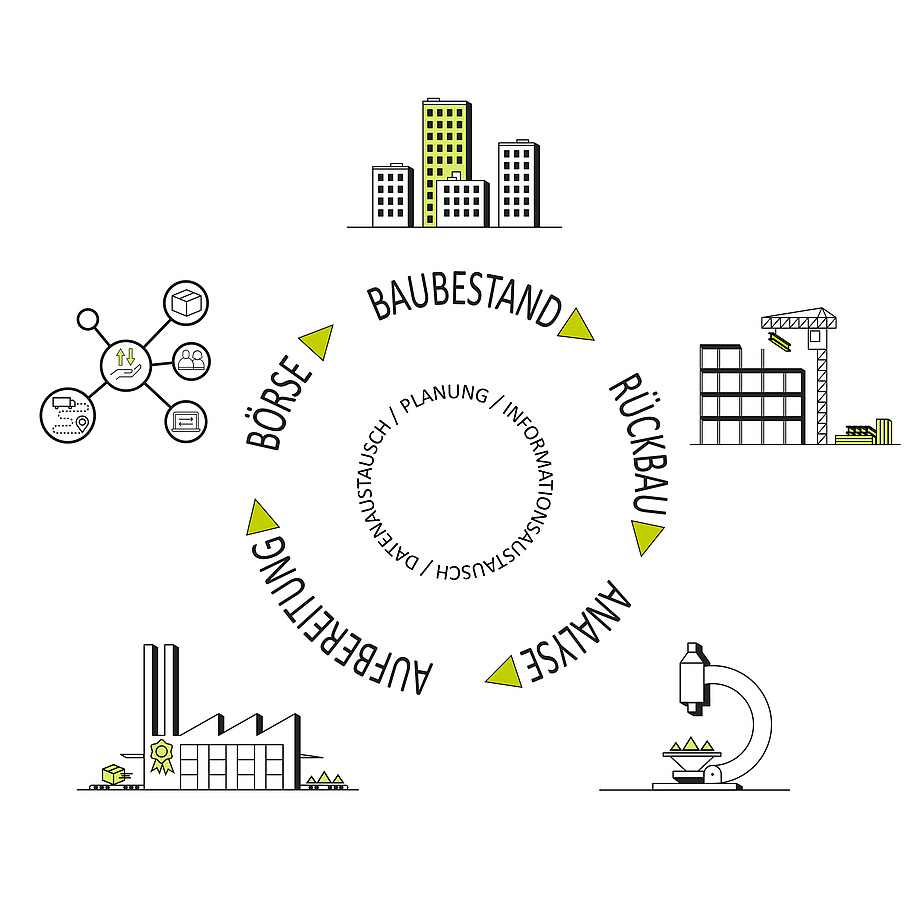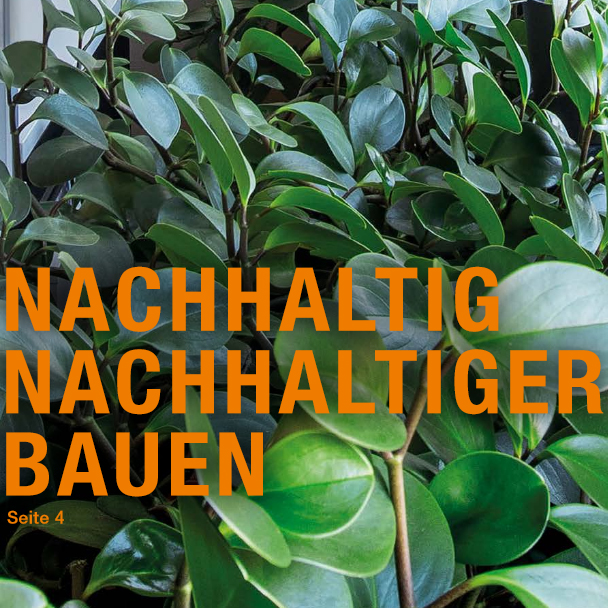Research towards a climate-neutral built environment
Humans have shaped their environment since the beginning of time. We all live in a built world consisting of houses, roads and other infrastructures. Humans have thus massively intervened in their environment and have had a lasting, albeit not always positive, impact on it.
Keeping the environmental impact small, making sustainable construction projects possible and rethinking construction are the goals of the Graz Center of Sustainable Construction research network established at TU Graz. Here, researchers from different scientific backgrounds get together to tackle construction-related topics – from architecture and construction to the digitisation of the construction process, planning and possibilities for sustainable handling of resources.
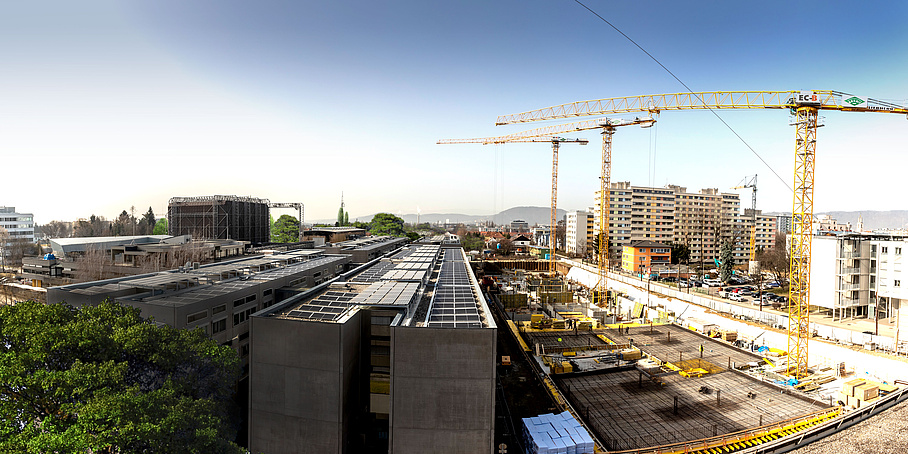
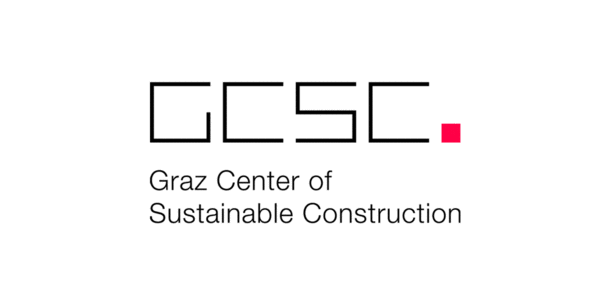
News from the Research Center
- Industriedialog (dialogue with representatives from industries) 2024
- Opening of the Graz Center of Sustainable Construction
- TU Graz fills Endowded Professorship for Sustainable Construction
- How Can We Counter the Climate Crisis?
- No Legacy of Pollution for the Next Generation
- The Spaces Between Buildings
- Dossier: Sustainable Construction with Concrete
Talk Science to Me: Podcast on Sustainable Construction
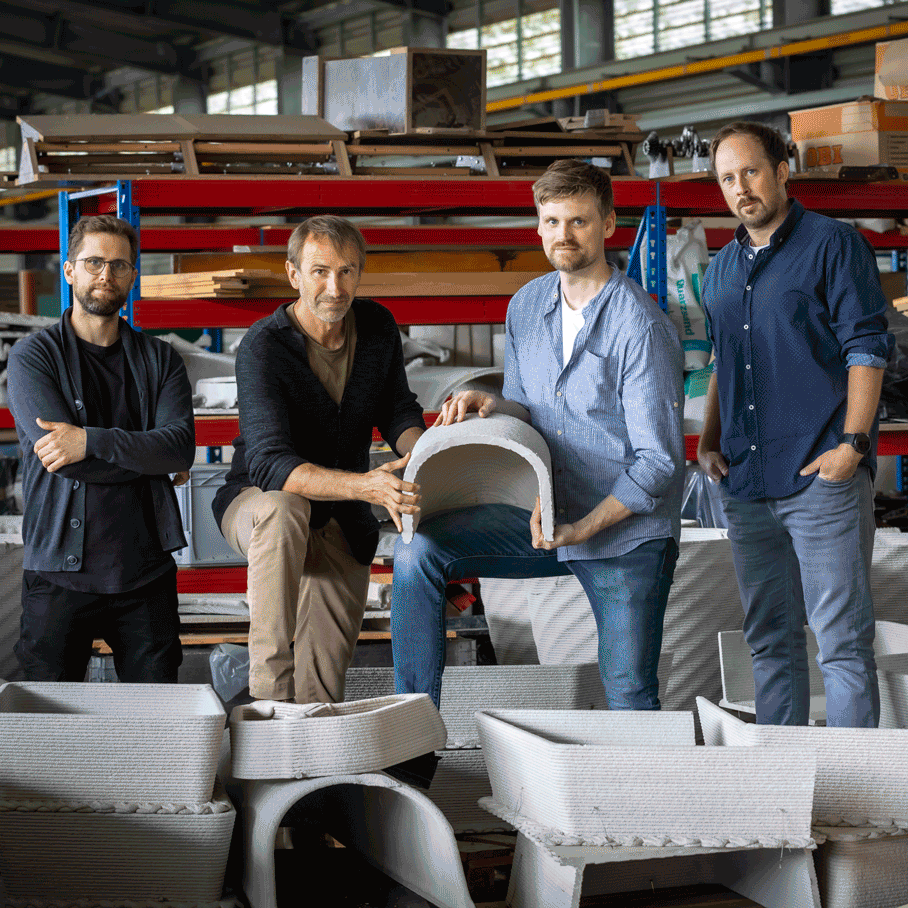
Research Agenda
The aim of GCSC is to change building practices to make them climate-neutral and to transform our built environment into a climate-friendly one. The joint work falls into five strategic fields of action:
- Field of Action 1: Cities and Regions
- Field of Action 2: Design and Construction
- Field of Action 3: Materials and Resources
- Field of Action 4: Digital Processes
- Field of Action 5: Evaluation Methods
Focus topics, which were identified for each field of action, form the actual content framework and allow greater flexibility in research.
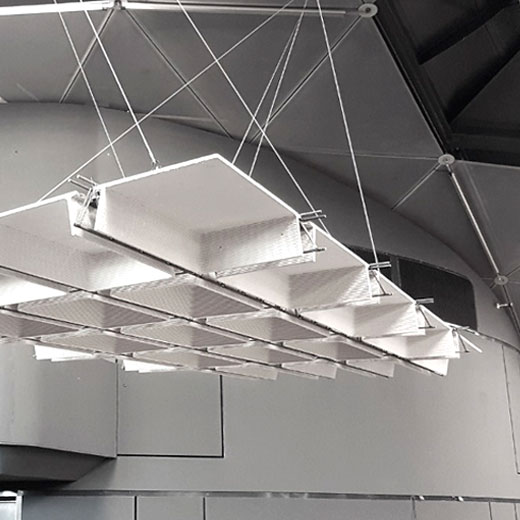
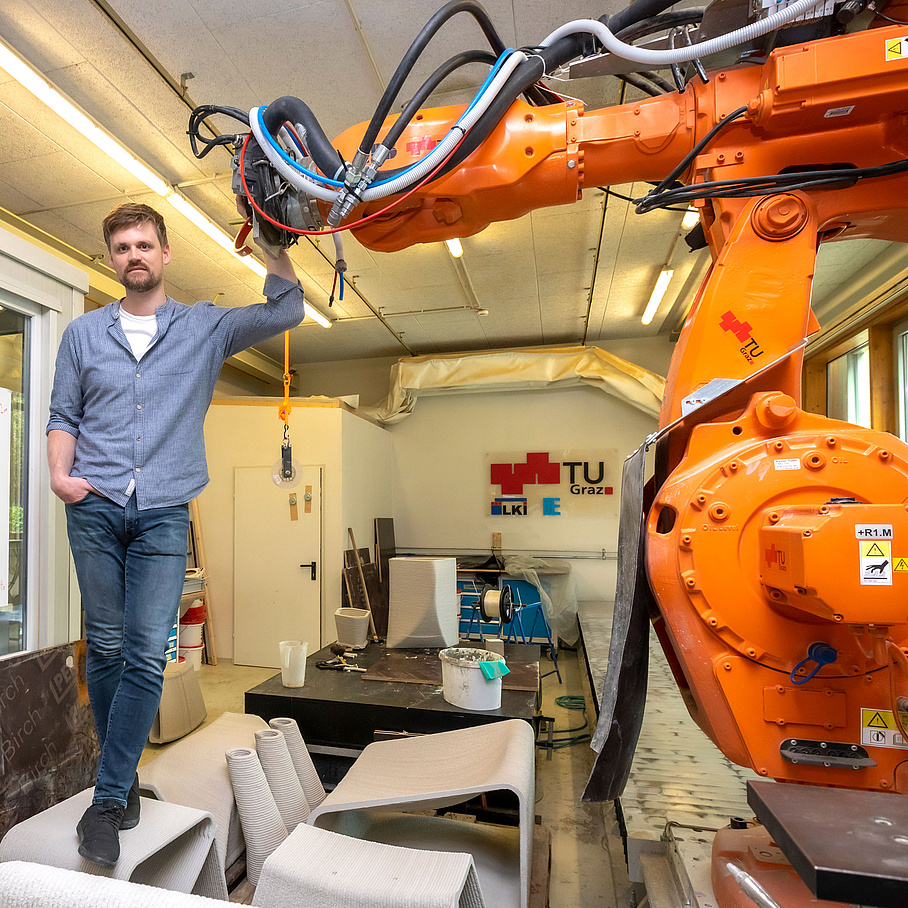
Projects
Ongoing Projects
Scientific Advisory Board
- Vanessa Miriam Carlow, Prof. Dr., TU Braunschweig
- Anya Vollpracht, Prof. Dr.-Ing., RWTH Aachen
- Guillaume Habert, Prof., ETH Zürich
- Werner Sobek, . Prof. Dr.-Ing. Dr.-Ing. E.h. Dr. h.c., Universität Stuttgart
- Martin Bechthold, Prof., Harvard University
- Ingeborg M. Rocker, Prof. Dr., Georgia Tech
Stakeholder Advisory Board
- Gernot Kupfer, Dipl.-Ing., Kammer der ZiviltechnikerInnen Stmk/Ktn
- Andreas Tropper, Dipl.-Ing., Landesbaudirektion Verkehr und Landeshochbau
- Markus Bogensberger, Dipl.-Ing., Baukultur in der Steiermark
- Erwin Dirnberger, LAbg. Bgm., Gemeindebund Steiermark
- Sebastian Spaun, Dipl.-Ing., VÖZ Smart Minerals
- Andreas Pfeiler, Dipl.-Ing. Dr., WKO Fachverband Steine-Keramik
- Martin Leitl, Dipl.-Ing., WKO Fachverband Steine-Keramik
- Paul Kubeczko, Dipl.-Ing., VÖB
- Maximilian Pammer, Dipl.-Ing., BIG - Unternehmensbereich Universitäten
- Ingrid Winter, Dr., Land Steiermark Abfall- und Ressourcenwirtschaft des Landes Stmk.
Contact
Spokesperson
Marcella RUSCHI MENDES SAADE
Mestra Dr.
Phone: +43 316 873 1344
m.ruschimendessaade@tugraz.at
Stefan PETERS
Univ.-Prof. Dr.-Ing.
Phone: +43 316 873 6210
stefan.peters@tugraz.at
Andreas TRUMMER
Assoc.Prof. Dipl.-Ing. Dr.nat.techn.
Tel.: +43 315 873 6212
andreas.trummer@tugraz.at
Coordination/Administration
Doris ARTHOFER
Mag. CIA
Phone:+43 316 873 6213
Fields of Action
Field of Action 1: Cities and Regions
Researchers in Field of Action 1 Cities and Regions consider buildings in their relation to the overarching structures of districts, cities and countries as well as to the sustainable and socially just organisation of social and public infrastructures. The focus is therefore on the densification and conversion of existing building stock, while also taking into account energy and mobility aspects as well as socio-cultural and socio-economic sustainability in the greening and qualification of public space, town centres and territory through strategic planning.
Coordination: Eva Schwab
Field of Action 2: Design and Construction
Field of Action 2 Design and Construction focuses on the sustainable interplay of material, resources, building components and parts, which in the light of climate change, is in dire need of urgent action among other things. The research focus is on innovative design and planning methods, rethinking processes and developing room typologies, building systems, components and building materials. The aim is to demonstrate and establish sustainability throughout the entire construction industry in a timely way.
Coordination: Matthias Raudaschl
Deputy: Johann Hafellner
Field of Action 3: Materials and Resources
Resources and building materials in material cycles are at the core of research activities in Field of Action 3 Material and Resources. The aim is to develop sustainable materials, components, buildings, cities and regions. To achieve this, it is necessary to make primary and secondary resources usable across sectors, close material cycles, use resources and materials effectively and efficiently in terms of their performance and climate impact, and research and develop innovative building materials.
Coordination: Joachim Juhart
Deputy: Dirk Schlicke
Field of Action 4: Digital Processes
Digital processes cover all phases of building development ‒ from planning to construction and operation to conversion and demolition. In the future, comprehensive models, simulation methods and artificial intelligence will help to more precisely assess and control the performance and environmental impact of buildings over their entire life cycles. Research topics in the Field of Action 4 Digital Processes also include innovative measuring techniques, digitally controlled manufacturing as well as visualisation methods and parametric models which are used to develop various future scenarios.
Coordination: Urs Hirschberg
Deputy: Christina Hopfe
Field of Action 5: Evaluation Methods
In Field of Action 5 Evaluation Methods, researchers develop new or advanced methods as well as processes to evaluate, plan and make decisions in sustainable construction. In addition, the focus is on systemic modelling and life cycle sustainability assessments of demonstration projects for sustainable building. The aim is to transform the built environment with regard to sustainability and climate goals.
Coordination: Alexander Passer
Deputy: Tajda Potrc Obrecht
